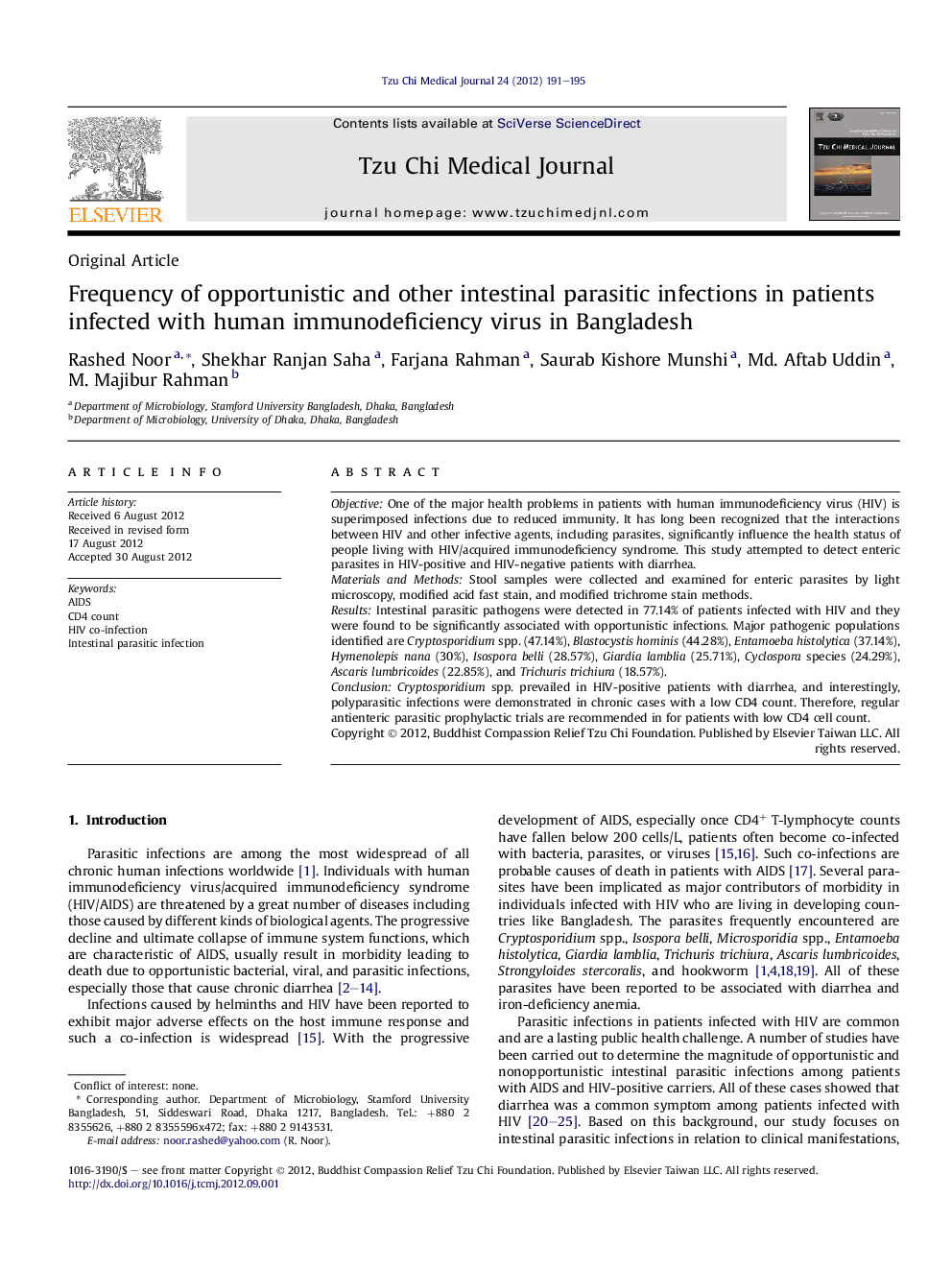| Article ID | Journal | Published Year | Pages | File Type |
|---|---|---|---|---|
| 3842003 | Tzu Chi Medical Journal | 2012 | 5 Pages |
ObjectiveOne of the major health problems in patients with human immunodeficiency virus (HIV) is superimposed infections due to reduced immunity. It has long been recognized that the interactions between HIV and other infective agents, including parasites, significantly influence the health status of people living with HIV/acquired immunodeficiency syndrome. This study attempted to detect enteric parasites in HIV-positive and HIV-negative patients with diarrhea.Materials and MethodsStool samples were collected and examined for enteric parasites by light microscopy, modified acid fast stain, and modified trichrome stain methods.ResultsIntestinal parasitic pathogens were detected in 77.14% of patients infected with HIV and they were found to be significantly associated with opportunistic infections. Major pathogenic populations identified are Cryptosporidium spp. (47.14%), Blastocystis hominis (44.28%), Entamoeba histolytica (37.14%), Hymenolepis nana (30%), Isospora belli (28.57%), Giardia lamblia (25.71%), Cyclospora species (24.29%), Ascaris lumbricoides (22.85%), and Trichuris trichiura (18.57%).ConclusionCryptosporidium spp. prevailed in HIV-positive patients with diarrhea, and interestingly, polyparasitic infections were demonstrated in chronic cases with a low CD4 count. Therefore, regular antienteric parasitic prophylactic trials are recommended in for patients with low CD4 cell count.
